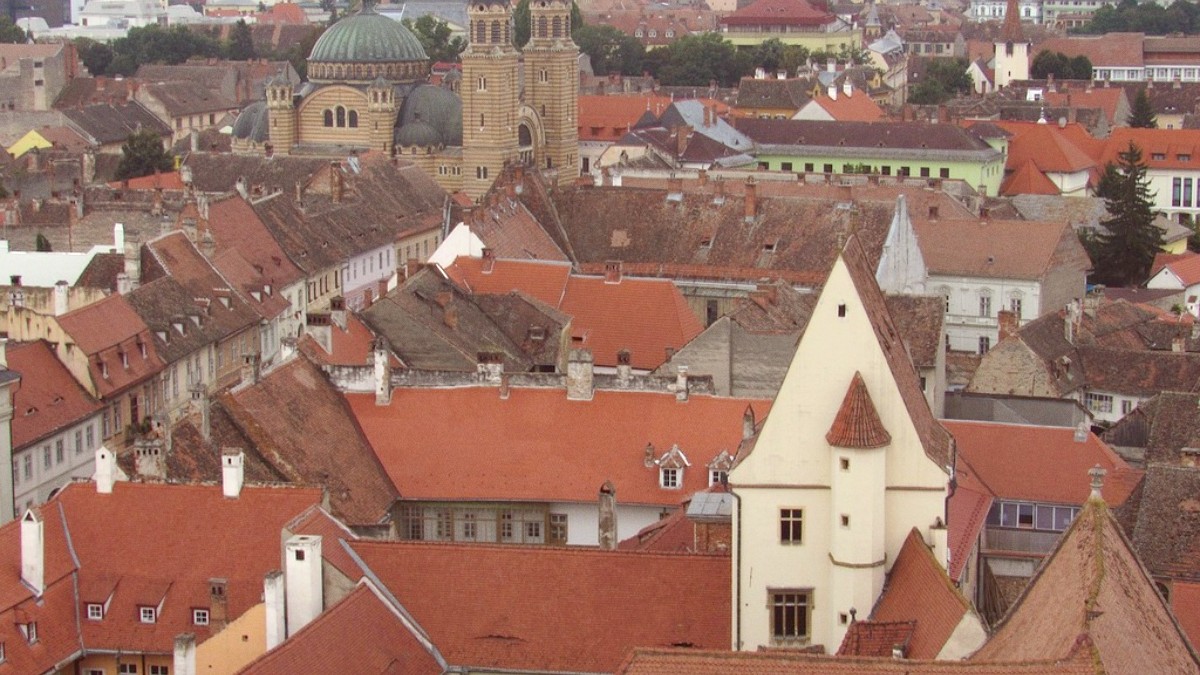
Transylvania, Romania
Spring (April-May): Temperatures are mild, generally ranging from an average of 10-18°C (50-64°F). Rainfall increases towards May, bringing fresh green landscapes. Trees begin to blossom. Days become longer, providing ample light for exploration.
Summer (June-August): These are the warmest months, with average temperatures between 20-28°C (68-82°F). Sunny weather, although occasional thunderstorms occur, especially in late afternoon. These storms are usually brief, clearing the air.
Winter snowfall occurs, especially in the surrounding mountains. During this time, prepare for cold weather and potential snow-related travel adjustments.
The Transfăgărășan and Transalpina mountain roads, popular for their scenic beauty, typically close from late October or early November until June due to heavy snow.
June-August & Dec
Warmest weather, comfortable outdoor activities, extended daylight hours.
Higher prices for accommodation and flights. Larger crowds at popular attractions.
April-May & Sept-Oct
Pleasant temperatures for walking and exploring. Fewer crowds at attractions.
Weather can be unpredictable, cooler days or sudden rain showers possible.
Jan-March & Nov
Lowest prices for travel and accommodation. Fewest tourists, quiet exploration.
Cold weather and shorter daylight hours. Some outdoor attractions may close.
Hiking: Late spring (May-June) or early autumn (September-October) have moderate temperatures and generally stable weather. City Exploration: Shoulder seasons (April-May, September-October) offer comfortable walking temperatures and fewer crowds.
Winter Sports: Visit between December and March for skiing and snowboarding in nearby resorts like Păltiniș. Festivals: Summer months (June-August) host cultural events and music festivals.
Hiking & outdoor enjoyment.
Festivals & lively city life.
City exploration, pleasant walks.
Christmas Market, winter charm.
Winter sports at Păltiniș.
Romania joined the Schengen area for air and sea borders on March 31, 2024, with land borders to follow. This detail impacts entry procedures for many travelers.
Travelers from EU/EEA/Switzerland do not require a visa. Entry with valid national ID card or passport for unrestricted stay.
Citizens of United States, Canada, UK, Australia, New Zealand, Japan, South Korea, and many other non-EU countries do not require a visa for stays up to 90 days within any 180-day period.
The official currency of Romania is the Romanian Leu (plural: Lei), with the ISO code RON. Symbol: "Lei" or "L". One Leu divides into 100 Bani. Coins: 1 Ban, 5 Bani, 10 Bani, 50 Bani. Banknotes: 1 Leu, 5 Lei, 10 Lei, 20 Lei, 50 Lei, 100 Lei, 200 Lei, and 500 Lei.
Romania offers good value compared to many Western European countries.
Daily costs for different travel styles, from budget to luxury, help plan expenses.
Use this guide to align your spending with your travel preferences.
A comfortable place to stay. Prices vary by type and location, ranging from budget-friendly dorms to luxury hotels.
Hostel dorm bed: 50-100 RON (€10-€20)
Luxury hotel double room: 500+ RON (€100+)
From quick street food bites to lavish dining experiences, Sibiu offers food for every budget.
Street food/pastry: 5-15 RON (€1-€3)
Fine dining meal: 150+ RON (€30+)
Moving around the city and visiting its sights has various price points.
Local bus ticket: ~3 RON (€0.60)
Concert/Performance ticket: 50-150 RON (€10-€30)
| Service Category | Standard Tip | Notes |
|---|---|---|
| Restaurants/Cafes | 10-15% | 10% for good service, 15% for exceptional. Check for service charge. |
| Taxis | Round up or 5-10% | Round up to nearest 5 or 10 Lei, or add 5-10%. |
| Hotel Staff / Tour Guides | 5-50 RON | 5-10 RON for hotel staff. 20-50 RON per person for good tour guides. |
Sibiu is generally a safe city. Awareness helps.
Practice good food hygiene. Eat at reputable establishments.
Wear Long-sleeved shirts and pants. Use Insect repellent. Check for ticks.
Common in winter. Practice good hand hygiene.
Emergency Number: 112
Sibiu has medical facilities, including a County Clinical Emergency Hospital. Private clinics offer a higher standard of care, often requiring upfront payment.
Pharmacies ("Farmacie") are widely available. Some operate 24/7. Pharmacists offer advice and over-the-counter medications.
Public healthcare facilities can be basic. Private clinics generally offer modern facilities and higher standards. For serious medical conditions, private care is often preferred. Travel insurance for medical expenses and potential medical evacuation.
Tap water in Sibiu generally potable. Many travelers drink Bottled water. A Filtered water bottle Filtered water bottle for peace of mind.
Standards in reputable restaurants and cafes are generally good. Choose busy street food vendors.
Sibiu is safe with low crime rates. Petty crime occurs in crowded areas. Stay vigilant with belongings. Use Anti-theft bags or a Money belt.
Sibiu is generally safe. Maintain awareness.